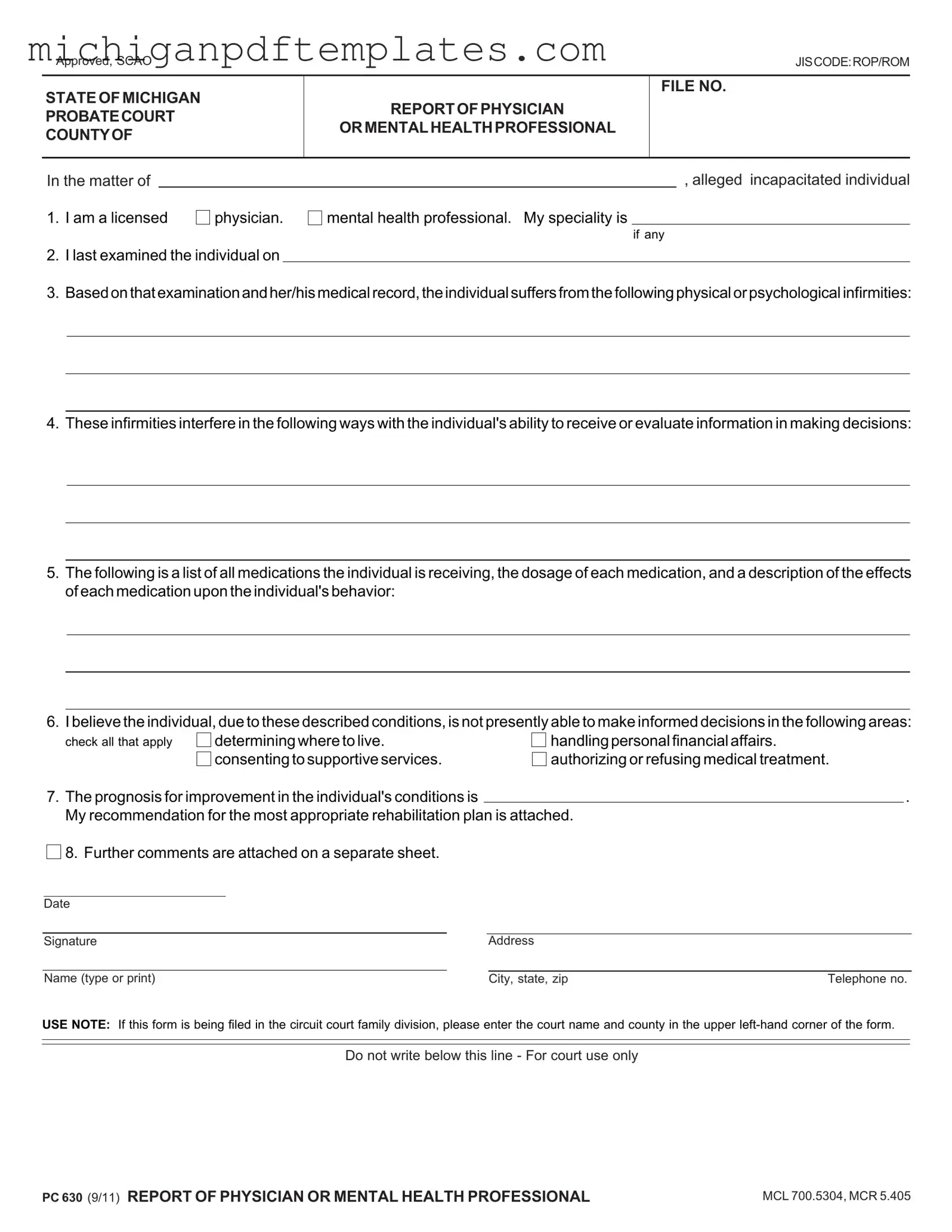Fill in Your Michigan Pc 630 Form
The Michigan PC 630 form is a report prepared by a licensed physician or mental health professional regarding an individual who may be incapacitated. This form outlines the individual's medical condition, the impact on their decision-making abilities, and any necessary recommendations for rehabilitation. If you need to fill out this form, click the button below.
Get Your Form Now

Fill in Your Michigan Pc 630 Form
Get Your Form Now

Get Your Form Now
or
▼ PDF Form
Finish this form quickly and move on
Fill in and complete Michigan Pc 630 online quickly.